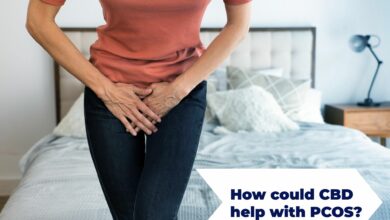
Sleep is essential, and if you’re not getting it, maybe it’s time to try medical cannabis.
In the UK there are as many as 16 million people who have sleepless nights, a third of whom say they have insomnia. In the United States alone up to 50% of the population will experience some level of insomnia during their lives.
Insomnia isn't just about feeling sluggish at work or in your daily life. It can affect your mood, concentration levels, and in rare cases even be fatal.
Table of Contents
Is medical cannabis a solution to insomnia?
Cannabis is arguably the most well known and frequently used narcotic in the entire world. However, it’s also becoming increasingly relevant to health and wellness research.
Attitudes towards medical cannabis are changing quickly and so are the laws around it. In part this is because of grassroots activism and in part because of the growing evidence and access to medical cannabis in the UK.
These days people use cannabis for a variety of reasons particularly to alleviate anxiety and stress, science tell us more each month about cannabis’ effectiveness in treating the most common sleep disorder, insomnia? CBD can also help insomnia and much more widely available.
Today we’re taking a look at the latest science on the effects of cannabis on insomnia.
Does cannabis (weed) help insomnia?
Cannabis has been used for a long time to help with trouble falling asleep. This is nothing new. Studies show cannabis is already widely used by people in treating their insomnia and sleep issues.
In recent years, scientific studies have found that insomnia is a top reason for using cannabis, along with issues including pain, anxiety and depression, which often co-occur with insomnia.
In 2019 a study found that among cannabis users, 84% said it was “very” or “extremely” helpful as a sleeping aid. 83% of the survey reported having used O-T-C sleep medications were able to either reduce or eliminate those drugs from their routines. This demonstrated the applicable nature when they began using cannabis for sleep. This is important because many of the OTC sleep aids have been linked to Alzheimer’s disease.
How effective is medical cannabis for insomnia?
Research into the effect of cannabis on insomnia is still ongoing. However, there have been studies for decades. Findings from the 1970’s, 80’s, and 90’s show cannabis can have a broad impact on sleep, including shortening the time it takes to fall asleep. Difficulty falling asleep is a hallmark symptom of insomnia.
What’s behind the ability of cannabis to make falling asleep easier and faster?
Most often, that’s been attributed to the sedative effects of the cannabinoid THC. (For a refresher on THC and other cannabinoids, read some of my previous articles here and here.) Indeed, most of the early studies of cannabis and sleep focused on THC-heavy strains of the plant.
Historically, studies into cannabis have been hampered by laws making cannabis illegal, even medicinally. This has only propagated negative attitudes from the general public towards the substance.
In 2020, laws and attitudes are changing every day. Cannabis is showing up in so many products related to health and wellness and because of that scientific inquiries are on the rise. That is partly why CBD has become legal in the UK.
We need rigorous research to precisely demonstrate how cannabis affects different aspects of sleep. How, also, it may best be used therapeutically to alleviate insomnia and other sleep issues.
Terpenes have sleep-boosting abilities
The more we learn about different cannabinoids the more likely medical professionals are to use it to treat sleep disorders. Many people are already convinced of cannabis’ potent effects, but the medical establishment needs to be convinced.
There are several types of terpenes found in cannabis have been shown to have sedative effects. Terpenes are tiny molecules found across the plant world. They give taste and aroma to plants and fruit.
Notably, they also have therapeutic abilities. Several have been identified as having sedative properties and excellent reducers of specific insomnia symptoms.
- Myrcene/Limonene/Terpineol/Terpinolene– all shown to function as sedatives
- Pinene/Phytol–specifically shorten the time it takes to fall asleep.
- Phytol has also increases overall sleep amounts
We’re really just at the beginning of the investigation into how individual terpenes may address sleep problems, including insomnia. You can read this recent article for a more in-depth look at the benefits of CBD—what they are, how they work.
What is insomnia?
Insomnia is one of those terms that’s become quite diluted over time.
If people only get a few hours of sleep for a few nights they’re likely to say they’ve insomnia. Even if they fall back into regular sleep routines afterwards.
However, it’s important to understand that sleep disorders are chronic and can be increasingly debilitating for many people. In essence, insomnia is a difficulty falling sleep and/or staying sleep, when you have the time and circumstances to get the sleep you need. Insomnia exists both as a set of symptoms and a clinical disorder.
That’s to say, people can experience symptoms of insomnia without necessarily having insomnia disorder.
What distinguishes insomnia symptoms from insomnia disorder?
To a great degree, the severity and frequency of symptoms, and—this is important—the impact of those symptoms on daily functioning. The more frequent, severe, and disruptive, the more likely insomnia symptoms constitute a sleep disorder.
The duration of symptoms can matter too—but keep in mind, insomnia disorder can flare up quickly and cause significant disruption before resolving, all within a short time span. Acute insomnia comes on suddenly and typically lasts for as little as a single night, up to a few weeks. Insomnia is considered chronic when it is present at least three nights a week for three months.
Scientific estimates suggest that somewhere between 35-50% of the adult population experience insomnia symptoms every year. Somewhere between 10-30% of the population suffering from insomnia disorder. Among that 10-30%, an estimated 40-70% have insomnia disorder that can be described as chronic.
What are the symptoms of insomnia?
There are a number of symptoms that would qualify a person to be suffering from clinical insomnia. These include but are by no means limited to:
- Difficulty falling asleep
- Trouble staying asleep (Incl. frequent and/or prolonged awakenings during the night)
- Waking very early
- Waking feeling unrefreshed
People with insomnia disorder also typically experience some form of daytime impairment, including:
- Fatigue, daytime sleepiness
- Irritability and mood disturbances
- Problems with memory, concentration, attention
- Decrease in energy, motivation, initiative
- Lack of interest and/or capacity for social interactions
- Physical pain (including muscle tension, headache, gastrointestinal distress)
- Anxiety about one’s ability to sleep
It’s important to note that people do not need to show all symptoms in order to have a sleeping disorder.
One symptom alone and one form of daytime impairment is enough. Often, however, symptoms occur together, and daytime impairment can be spread across multiple issues.
CBD as a sleeping aid
These days it seems like CBD (cannabidiol) is everywhere!
It’s often cited as a useful, safe remedy for stress and anxiety relief, pain management, enhanced concentration/focus, and even sexual enhancement.
In 2018, a study took place that was one of the first to analyze the effects of medical cannabis (in dried form) on insomnia. This was monitored under naturalistic, real-world conditions. The study’s authors found cannabis significantly improved insomnia symptoms.
Most interesting of all, they found CBD was associated with more significant relief from symptoms of insomnia than THC.
They also found use of more than 460 strains in a group of 400 people. This goes to show just how much choice is available. It also shows how much potential for specialization and targeting may be possible, particularly, in matching strains to sleep and specific sleep problems like insomnia.
To be clear, we need to see more laboratory-based, rigorously controlled studies. But this kind of real-world investigation also delivers valuable information and insight, and can point to future directions for scientific inquiry.
Cannabis & comorbid insomnia
When it comes to insomnia there isn’t just one kind. You may have heard of acute and chronic but what about comorbid?
Comorbid insomnia is a type of sleep disorder that arises alongside another medical condition. Until relatively recently it was often referred to as secondary insomnia. While not all insomnia disorders are comorbid, many are.
Frequently, insomnia begins while the sufferer has developed other health conditions. It can come about as a side effect of medication or other treatments. A growing amount of research indicates that medical cannabis can be useful in treating comorbid insomnia. For example:
Physical pain
A growing body of research demonstrates that cannabis may assist in alleviating physical pain. Pain management is a prime reason for many people to use cannabis in the first place.
A 2014 study found a group of people using cannabis therapeutically had on average a 64% reduction in their pain severity, and about half of them experienced significant relief.
Anxiety
Anxiety is one of the main reasons many people seek out medical cannabis. Cannabis and CBD have long been known for its stress-reducing anxiolytic effects on the body.
In 2019, a study by Shattell & Forster found people using cannabis for insomnia and comorbid conditions, including anxiety, depression and physical pain, reported significant improvements to all their co-occurring conditions. It’s common for insomnia to exist in a cluster of other health conditions, both physical and psychological. All these factors can interact with one another in complex, escalating ways.
How else can medical cannabis help?
It’s not only anxiety and depression with insomnia that cannabis may effectively treat. Studies are starting to show that cannabis may help alleviate insomnia symptoms that occur with PTSD, or post-traumatic stress disorder.
Sleep disorders, including insomnia and REM sleep behavior disorder, as well as intense nightmares, are frequently present with PTSD. With its ability to help improve sleep onset (i.e., to make falling asleep easier), and to reduce nightmares and suppress some amounts of REM sleep (when most active, intense dreaming occurs), cannabis appears to be promising as a therapy for PTSD-related insomnia.
This is an exciting and important area of research that deserves critical attention.
Medical cannabis and cancer
Firstly, cannabis does not cure cancer. However, it does provide some relief for cancer patients.
One of the best-known is for relief from cancer symptoms and side effects of cancer treatment (particularly nausea from chemotherapy). Cannabis has a well-documented ability to relieve pain, reduce nausea, and alleviate anxiety.
Insomnia is also often a concurrent symptom of cancer treatment. Research, including a 2019 review of studies, shows cannabis may improve insomnia that is comorbid with cancer.
Are you considering using medical cannabis for insomnia?
If you suffer from insomnia or some other sleep disorder, medical cannabis may be the answer. While CBD and medical cannabis are doing wonders for many people, it is important to be safe.
Always discuss your treatment options with your GP or a medical professional. Never stop taking any medications to replace it with medical cannabis without the advice and consultation of your doctor.
The “racing thoughts” that keep us awake lead to higher stress levels and anxiety. This is a serious issue and doesn't scratch the surface of the physical toll it can take. Take action and we hope you sleep well soon with CBD or medical cannabis!
You may also like to read: Medical Cannabis for arthritis – Everything you should know





